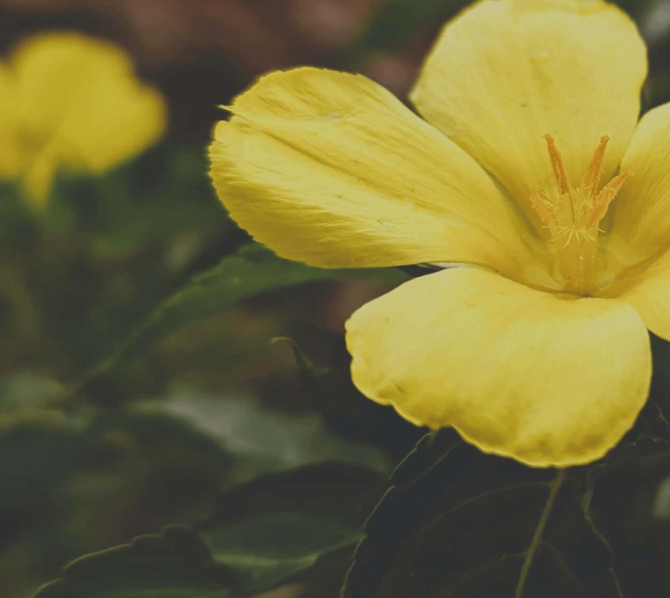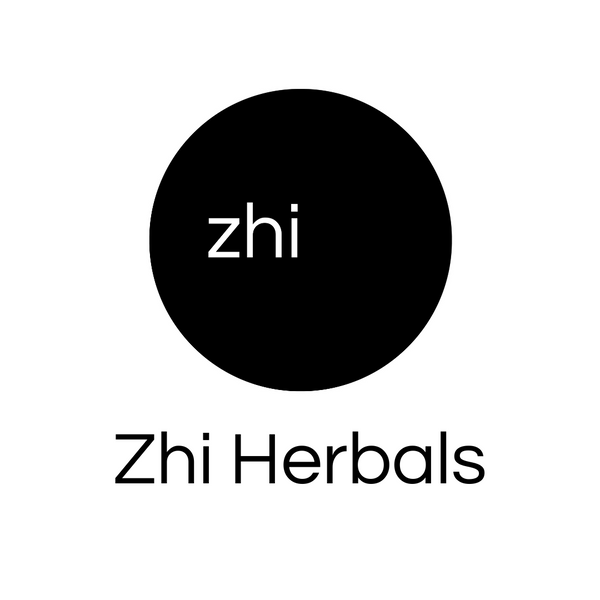
Best Herbs to Combine With Damiana
Share
Herbs That Combine Well With Damiana
Damiana (Turnera diffusa) is a popular herbal remedy for improving sexual health in both men and women. In fact, its alternative Latin name is Turnera aphrodisiaca. Besides low libido and sexual performance, other indications for damiana are the relief of depression and anxiety, including physical manifestations such as nervous indigestion and constipation.
Herbal remedies often work best in a team, so how can we best support the benefits of damiana? Let’s take a look at other herbs that boost testosterone, improve sexual performance, and support mental health.
Herbal Remedies for Boosting Testosterone
Damiana is the perfect accompaniment to natural testosterone boosters. It inhibits aromatase, an enzyme that converts testosterone to estrogen. If your levels of aromatase are high, they can prevent you from boosting testosterone regardless of what you try, and can cause excess levels of estrogen.
Ashwagandha Root and Damiana
Ashwagandha has got to be one of our favourites when restoring youthful energy levels and hormone production. Clinical studies have found that it can raise testosterone by 10-17%, depending on the participants and the dose and type of extract used. Ashwagandha may benefit both healthy men and those struggling with infertility.
Fenugreek Seed and Damiana
Most clinical studies show that fenugreek can boost testosterone, with increases anywhere between 6% and almost 30%. Additionally, one study that didn’t show a rise in total testosterone found a near-doubling of free testosterone.
Panax (Korean) Ginseng and Damiana
Panax ginseng is another herbal remedy that may increase testosterone in some circumstances. It appears to only have a significant effect among men with metabolic syndrome, a condition that also features disrupted energy production. The fitness benefits of maintaining healthy testosterone levels are further supported by Panax ginseng’s ability to increase mitochondria counts, which are responsible for producing most of your cellular energy.
Why Some Women Can Benefit From Aromatase Inhibitors
If you are a woman with a personal or family history of breast cancer, or you have another estrogen-dependent condition such as endometriosis, you may need to limit any increase in estrogen levels. Including damiana with any of the above herbs can ensure that you’ll also benefit from a boost in testosterone, which maintains a youthful libido and muscle mass.
Herbal Remedies for Performance
Damiana’s estrogen-lowering, relaxing abilities may contribute to improved sexual performance. Erectile dysfunction is an increasingly common issue as men age because of reduced testosterone levels and narrowing of the blood vessels.
Horny Goat Weed (Epimedium spp.) and Damiana
The (in)famous horny goat weed may seem over-hyped, but it could support damiana’s effects on sexual performance. Horny goat weed is a PDE5 inhibitor, meaning it affects the exact same receptor as Viagra. This causes the blood vessels to relax, which may give you harder, longer-lasting erections only while you are aroused. Even better, horny goat weed could increase testosterone levels, giving you all-round reproductive health benefits.
Ginkgo Biloba and Damiana
Ginkgo biloba is a powerful antioxidant herbal remedy, with benefits for your circulatory and nervous systems.
As ginkgo biloba can help boost circulation, having an erection is much easier, but that’s not all it can do for you. Other research shows that it may relieve sexual dysfunction caused by antidepressants. Women are more responsive to this benefit than men, with 91% reporting improvement in one study compared to 76% of men. Desire, physical signs of arousal, climax, and afterglow were all significantly better. These improvements were most likely thanks to ginkgo’s neurological benefits too, as the volunteers also noticed better mental clarity.
Herbal Remedies for Mental Health
One lesser-known traditional use of damiana is as a mood-lifting, relaxing herbal remedy. While a better intimate relationship and testosterone levels can certainly contribute to mental health, damiana may have direct benefits for your brain.
Chamomile and Damiana
Chamomile is one of the most famous herbal medicines in the West for stress and trouble sleeping. Chances are that your grandmother or mother gave you chamomile tea at some point for a minor illness, and modern research is here to back them up.
One clinical study on chamomile compared its effects in people with anxiety alone, and people with both anxiety and depression. Despite seemingly being more difficult to treat, chamomile was a little more effective in people who had both mood issues.
Chamomile appears to benefit the brain in several ways. It reduces the breakdown of serotonin, dopamine, and noradrenaline, giving you a gentle mood lift and perhaps an increase in motivation. Chamomile also inhibits substance P, a chemical that causes pain and dysregulates brain function through driving up inflammation. As for anxiety, chamomile reduces cortisol, the main stress hormone that can thwart your best efforts to relax and enjoy a good night’s sleep.
St John’s Wort and Damiana
St. John’s Wort (Hypericum perforatum) is another popular remedy that can help you feel more relaxed or brighten your mood. A review of clinical studies shows that in some cases it can be roughly as effective as conventional medication in relieving depression, both when it comes to response rates and remission. St John’s Wort has a broad neurotransmitter-boosting effect, as it can increase serotonin, dopamine, and noradrenaline levels. While serotonin has a calming, uplifting effect, dopamine enhances motivation and focus, and noradrenaline is a necessary part of the stress response.
However, always consult your doctor first, especially if you take any prescription drugs, including the contraceptive pill. St John’s Wort is known to affect drug metabolism and may change their clearance rates from the body. Avoid St John’s Wort if you already take SSRIs or ADHD medication because it may cause an excessive rise in serotonin or dopamine.
Velvet Bean/Mucuna and Damiana
Velvet bean gets a mention here because of its two main roles. It raises both dopamine and testosterone, so it can support mental health and male reproductive health. Mucuna is actually a natural source of L-dopa, the precursor to dopamine, making up around 5% of its phenolic content, alongside smaller amounts of serotonin. As for its hormonal effects, mucuna reduces the stress hormone cortisol while indirectly raising testosterone.
Try Damiana From Zhi Herbals
As wonderful as the above herbs can be, damiana may be the missing piece of the puzzle when you’re finding the best combination of herbs for your unique needs. Zhi Herbals is proud to provide Canada with damiana leaf wildcrafted from Mexico. With sustainable practices as our priority, you can be assured that your purchase will contribute to protecting the herb for our future.
Related Articles
Does Ashwagandha Make You Horny?
References
1. Smith, S. J., Lopresti, A. L., Teo, S. Y. M., & Fairchild, T. J. (2021). Examining the Effects of Herbs on Testosterone Concentrations in Men: A Systematic Review. Advances in nutrition (Bethesda, Md.), 12(3), 744–765. https://doi.org/10.1093/advances/nmaa134
2. Niu, Y., Lin, G., Pan, J., Liu, J., Xu, Y., Cai, Q., Wang, T., Luan, Y., Chen, Y., Feng, Y., Yang, X., Tian, W., Bae, W. J., Guan, R., & Xin, Z. (2022). Deciphering the myth of icariin and synthetic derivatives in improving erectile function from a molecular biology perspective: a narrative review. Translational andrology and urology, 11(7), 1007–1022. https://doi.org/10.21037/tau-22-232
3. Cohen, A. J., & Bartlik, B. (1998). Ginkgo biloba for antidepressant-induced sexual dysfunction. Journal of sex & marital therapy, 24(2), 139–143. https://doi.org/10.1080/00926239808404927
4. Amsterdam, J. D., Li, Q. S., Xie, S. X., & Mao, J. J. (2020). Putative Antidepressant Effect of Chamomile (Matricaria chamomilla L.) Oral Extract in Subjects with Comorbid Generalized Anxiety Disorder and Depression. Journal of alternative and complementary medicine (New York, N.Y.), 26(9), 813–819. https://doi.org/10.1089/acm.2019.0252
5. Ng, Q. X., Venkatanarayanan, N., & Ho, C. Y. (2017). Clinical use of Hypericum perforatum (St John's wort) in depression: A meta-analysis. Journal of affective disorders, 210, 211–221. https://doi.org/10.1016/j.jad.2016.12.048
6. Shukla, K. K., Mahdi, A. A., Ahmad, M. K., Jaiswar, S. P., Shankwar, S. N., & Tiwari, S. C. (2010). Mucuna pruriens Reduces Stress and Improves the Quality of Semen in Infertile Men. Evidence-based complementary and alternative medicine : eCAM, 7(1), 137–144. https://doi.org/10.1093/ecam/nem171
